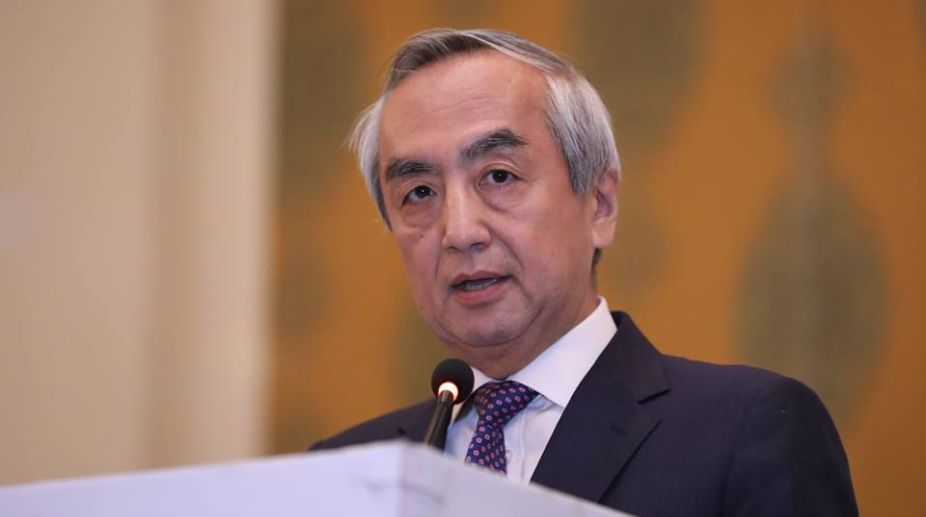India and Japan have started technical discussions for future research collaboration in the areas of unmanned ground vehicles and robotics, Japanese Ambassador to India Kenji Hiramatsu has announced.
Addressing a seminar on “India & Japan: Towards A Higher Stage’’ organised by a think-tank here on Tuesday night, he also declared Tokyo’s readiness to provide its state-of-the-art US-2 amphibian aircraft to India, describing it as a symbol of the high degree of trust between the two countries.
He said the two countries were working hard to further enhance exchanges and cooperation between their respective forces in the air, sea and land. Bilateral joint exercises and multilateral activities should become more frequent and wide-ranging, as well as more advanced in enhancing their interoperability, including on anti-submarine aspects. “In the future, we will witness expanded joint exercises and cooperation, not only in the maritime domain but also in such areas as humanitarian assistance and disaster relief, peacekeeping operations and counter-terrorism,’’ he added. The two countries were also working to strengthen cooperation in expanding maritime domain awareness in the Indo-Pacific region.
Hiramatsu said India and Japan have agreed to work together to achieve a “free, open and prosperous Indo-Pacific” by synergising Prime Minister Narendra Modi’s “Act East Policy” and Japanese Prime Minister Shinzo Abe’s “Free and Open Indo-Pacific Strategy”.
In a veiled reference to China’s aggressive posturing in the South China Sea which has upset many of its neighbours, he noted that both India and Japan subscribe to common principles such as the rule of law, freedom of navigation and peaceful resolution of disputes.
On India-Japan civil nuclear cooperation, he said the deal between the two countries after more than six years of negotiations reflected a new level of mutual confidence and strategic partnership in the cause of promoting clean energy and realising a peaceful and secure world. The joint working group for promoting civil nuclear cooperation would be established soon.
Speaking about cooperation in railways, Hiramatsu said first historic step for cooperation in this area had already been taken during Prime Minister Abe’s visit last year when the foundation stone of the Mumbai-Ahmedabad high speed rail project was laid. ‘Shinkansen’ (Bullet Train) was once a dream project for Japan. It transformed the country into an industrial hub. Now the project to realise the same dream has started in India. Japan was committed to fully supporting this project, as well as measures for railway safety in India, he added.











